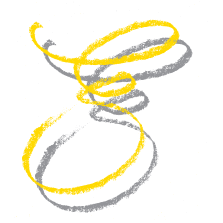After the techno high jinks of the Met’s cinema relay of Tristan und Isolde the day before, Saffron Opera Group’s unencumbered concert performance of Wagner’s Die Walküre came as a blessed relief. It was also a performance that triggered the ring cycle’s main drama with considerable panache, building on an incandescent first act. The company delivered their Rheingold earlier this year, and Siegfried follows next February.
I first heard them two years ago in Die Meistersinger, which tumed out to be the sort of performance you willed to succeed, and the same applied to this Walküre. For a start, the Saffron Opera Group Orchestra was an infinitely more reliable and flexible mix of amateur and professional players, with a warm and broad string sound (including a heavenly cello solo in Act 1) and some excellent woodwind playing; and if the brass had a few unruly moments, they were entirely in the spirit of things. The conductor Michael Thorne was frankly indulgent in giving the orchestra its head at the expense of
the singers, but in general the ensemble was fine, even if, with his head buried in the score, he barely acknowledged the singers. His tempos were on the steady side, but he had a clear idea of pace in measuring out Wagner’s narrative.
All the singers characterized their roles vividly but without exaggeration. As Siegmund and Sieglinde, Michael Bracegirdle and Elisabeth Meister established a level of intensity that defined the whole evening. Occasionally I wished for a less dry sound from Bracegirdle, but he opened out for an electrifying Winterstürme. If he made less of an impression in Act 2 that was partly down to some intrusive orchestral weight in the Todesverkündigung, when you craved something quieter and more neutral.
Initially I wondered if Meister would ever break out of her anxious half-voice. She did, though, gathering depth and brilliance, and built towards an orchestra-surfing ‘O hehrstes Wunder!‘ of pulverizing grandeur. She and her Siegmund knocked sparks off each other, and their light attachment to their vocal scores heightened the drama.
As Wotan, Andrew Greenan had depth and darkness, although his tone and delivery were stolidly unvarying. His attention to words secured a gripping Narration, with plenty of despair-which was hardly surprising, given Sarah Pring’s superb and imperious Fricka. Greenan showed signs of tiring as he settled into his Act 3 negotiations with the errant Brünnhilde, but he rallied for a solidly sung (from memory) ‘Leb’ wohl’. Elaine McKrill’s light and even soprano hit the spot in Brünnhilde’s big Act 2 dialogues, and
her passionate volte face over supporting Siegmund revealed great reserves of power, which served her well in Act 3. The Ride of the Valkyries was a rather stately affair, but the necro-equestriennes themselves were a magnificent bunch, high on all the testosterone from their stocktaking. Kirstin Sharpin (Gerhilde) and Cara McHardy (Helmwige) started off heroically and the others followed, and I hope Melanie Lodge’s decisive Waltraute makes an appearance in Götterdämmerung,
PETER REED
